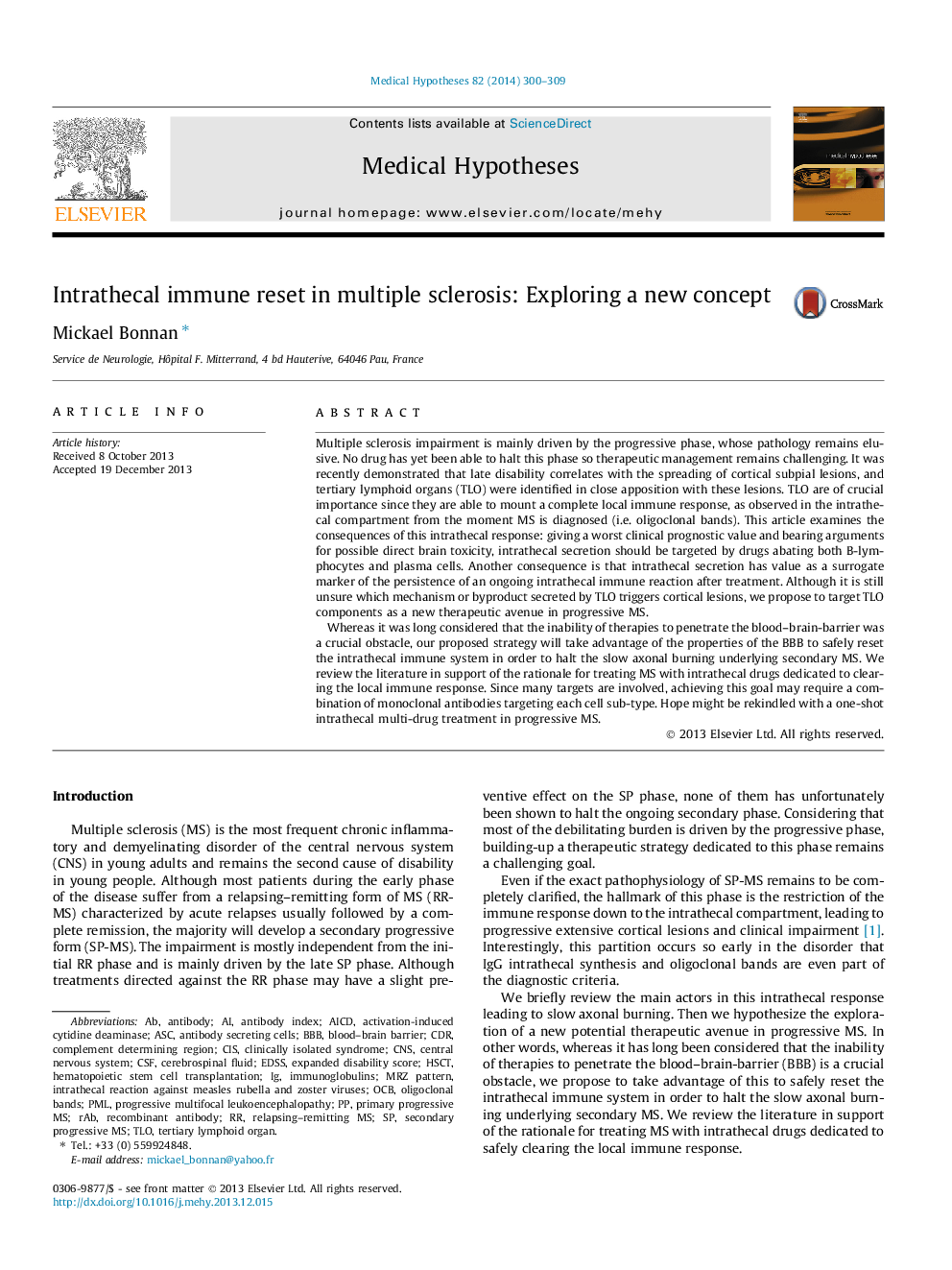| Article ID | Journal | Published Year | Pages | File Type |
|---|---|---|---|---|
| 5811839 | Medical Hypotheses | 2014 | 10 Pages |
Multiple sclerosis impairment is mainly driven by the progressive phase, whose pathology remains elusive. No drug has yet been able to halt this phase so therapeutic management remains challenging. It was recently demonstrated that late disability correlates with the spreading of cortical subpial lesions, and tertiary lymphoid organs (TLO) were identified in close apposition with these lesions. TLO are of crucial importance since they are able to mount a complete local immune response, as observed in the intrathecal compartment from the moment MS is diagnosed (i.e. oligoclonal bands). This article examines the consequences of this intrathecal response: giving a worst clinical prognostic value and bearing arguments for possible direct brain toxicity, intrathecal secretion should be targeted by drugs abating both B-lymphocytes and plasma cells. Another consequence is that intrathecal secretion has value as a surrogate marker of the persistence of an ongoing intrathecal immune reaction after treatment. Although it is still unsure which mechanism or byproduct secreted by TLO triggers cortical lesions, we propose to target TLO components as a new therapeutic avenue in progressive MS.Whereas it was long considered that the inability of therapies to penetrate the blood-brain-barrier was a crucial obstacle, our proposed strategy will take advantage of the properties of the BBB to safely reset the intrathecal immune system in order to halt the slow axonal burning underlying secondary MS. We review the literature in support of the rationale for treating MS with intrathecal drugs dedicated to clearing the local immune response. Since many targets are involved, achieving this goal may require a combination of monoclonal antibodies targeting each cell sub-type. Hope might be rekindled with a one-shot intrathecal multi-drug treatment in progressive MS.
